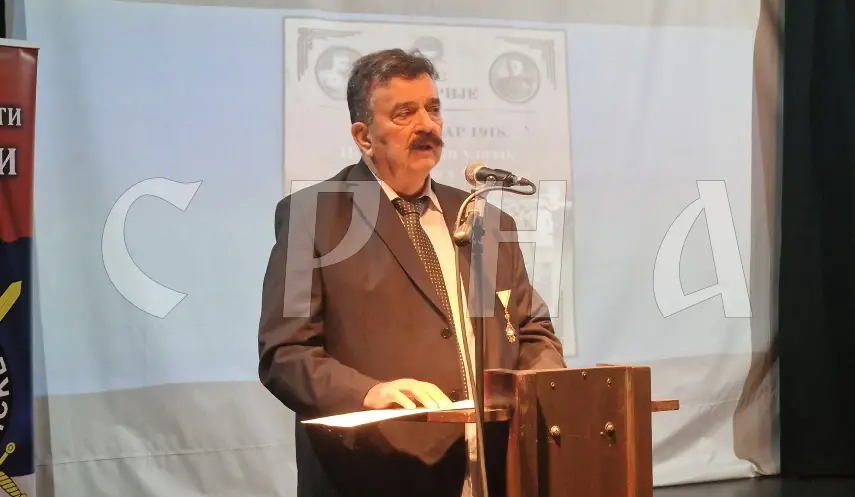ENTRY OF SERBIAN ARMY INTO SARAJEVO - THE BIGGEST EVENT IN HISTORY OF SERBS IN BiH
Republika Srpska - Istočno Sarajevo - history lesson
11/10/2025
13:44

ISTOČNO SARAJEVO, NOVEMBER 10 /SRNA/ - The entry of the victorious Serbian Army into Sarajevo on November 6, 1918, represents by far the greatest event in the history of Serbs in this area, and, unfortunately, this day of liberation is no longer commemorated in Sarajevo, said Republika Srpska Army officer Dragan Mijović today during a history lesson in Istočno Sarajevo.
Ahead of his lecture to secondary school students, Mijović told reporters that on this significant date in the history of Sarajevo Serbs - and more broadly, the history of Serbs in BiH - freedom arrived after 455 years of subjugation under the Turks and later the Austro-Hungarians. It was welcomed on the bayonets of the Serbian Army, which reached Sarajevo from the Salonika front following a 45-day forced march under combat conditions.
"The first unit to enter Sarajevo from the direction of Višegrad was a detachment from the 14th Infantry Regiment of the Timok Division of the Second Army under Stepa Stepanović," Mijović stated.
He emphasized that during the history lesson, he would try to convey the atmosphere of that time and the significance of this event for Serbs in Sarajevo.
"That welcome was an outpouring of emotions that is hard to describe. Words are lacking to explain the excitement, gratitude, and admiration for the army that arrived. Since the existence of Sarajevo Serbs, this has been absolutely the greatest day in their history," Mijović emphasized.
He pointed out that this day of liberation is no longer mentioned in Sarajevo.
"Today’s Austria Square, after the liberation, bore the name of General Ranković and was called Ranković Square. After the Second World War, it was renamed April 6 Square, and today it is once again Austria Square. This, of course, says something about our neighbors," Mijović added.
History professor Lazar Škobo noted that at the time, the Muslims and Croats in Sarajevo did not greet the liberation of the city with much enthusiasm.
"If we take into account the stance that the Croatian and Muslim populations had during the First and Second World Wars, that is, the side they chose, it follows that they did not greet the creation of the Kingdom of Serbs, Croats, and Slovenes and the entry of the Serbian Army into Sarajevo with joy," Škobo stated.
He added that it is questionable whether the entry of the Serbian Army represented liberation for those peoples, although, as he emphasized, it should have been understood that way, because without that victory and liberation, it is likely that both the Muslim and Croatian populations in these areas would have disappeared.

SERBS IN TEARS AND FEAR OVER OWNERSHIP OF ORTHODOX CEMETERIES AND CHURCHES

CVIJANOVIĆ DEMANDS ACCOUNTABILITY FOR SHAMEFUL CONCERT IN ŠIROKI BRIJEG

OSTOJIĆ URGES BiH AND EU TO ACT OVER GLORIFICATION OF FASCIST IDEOLOGIES





